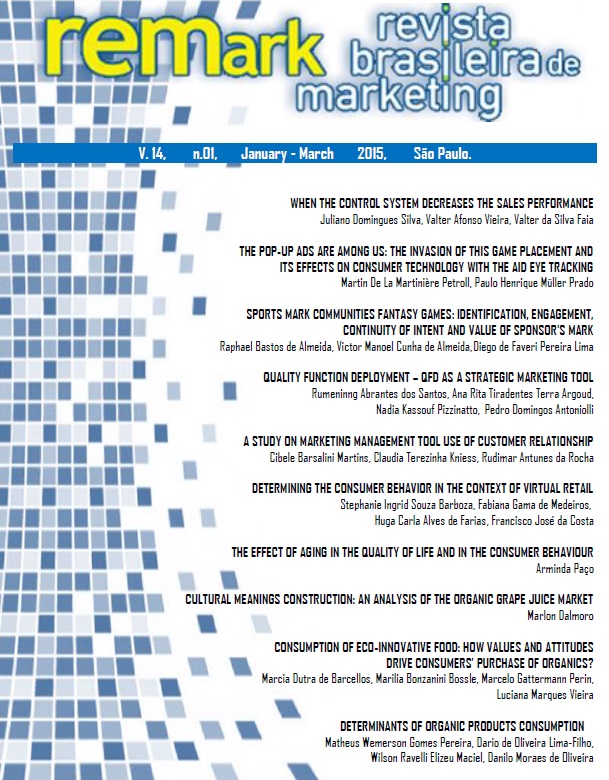Consumption of Eco-Innovative Food: How Values and Attitudes Drive Consumers’ Purchase of Organics?
DOI:
https://doi.org/10.5585/remark.v14i1.2821Keywords:
Eco-Innovative Food, Personal Values, Innovation, Sustainability, Conscious Consumer, Organics.Abstract
Brazilian recent economic growth led to a rising demand for products that must satisfy desires that go beyond basic needs. Following this growth, social and environmental awareness upsurge, increasing demand for sustainable food, and subsequently, an opportunity for companies to add value through innovation in sustainable food products, e.g. to develop innovative ingredients and products (such as organics) that provide healthiness for consumers and a sustainable offer for the market. Considering the importance of consumer evaluation for the adoption and success of an innovation, the aim of this paper is to investigate conscious consumption behaviour of organic food in Brazil. In specific, to verify the relationship between personal values, attitudes towards the environment and technology, and attitudes and consumer behaviour towards eco-innovative food. A survey with 401 consumers was held in organic street markets in Porto Alegre. Data was analysed through Structural Equation Modelling. Results indicate that consumers presented strong collectivistic values and very positive attitudes towards environment and nature. These attitudes positively influence the purchase of eco-innovative food. Attitudes towards technological progress negatively influence on its consumption. Theoretically, the hierarchical model is confirmed. This study addressed the consumption of eco-innovative food, in this case, organic food, trying to overtake the gap between attitudes and behaviour. Public authorities and companies should work to increase consumer awareness and consumption of sustainable food, benefiting society and the natural environment, and must improve communication about the relevance of how technology can act to improve safety and increase the availability of eco-friendly food.
Downloads
Downloads
Published
How to Cite
Issue
Section
- Abstract 468
- PDF/ENGLISH (Português (Brasil)) 353








